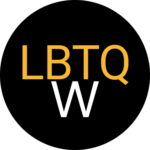Q&A with Jacquie Lawrence
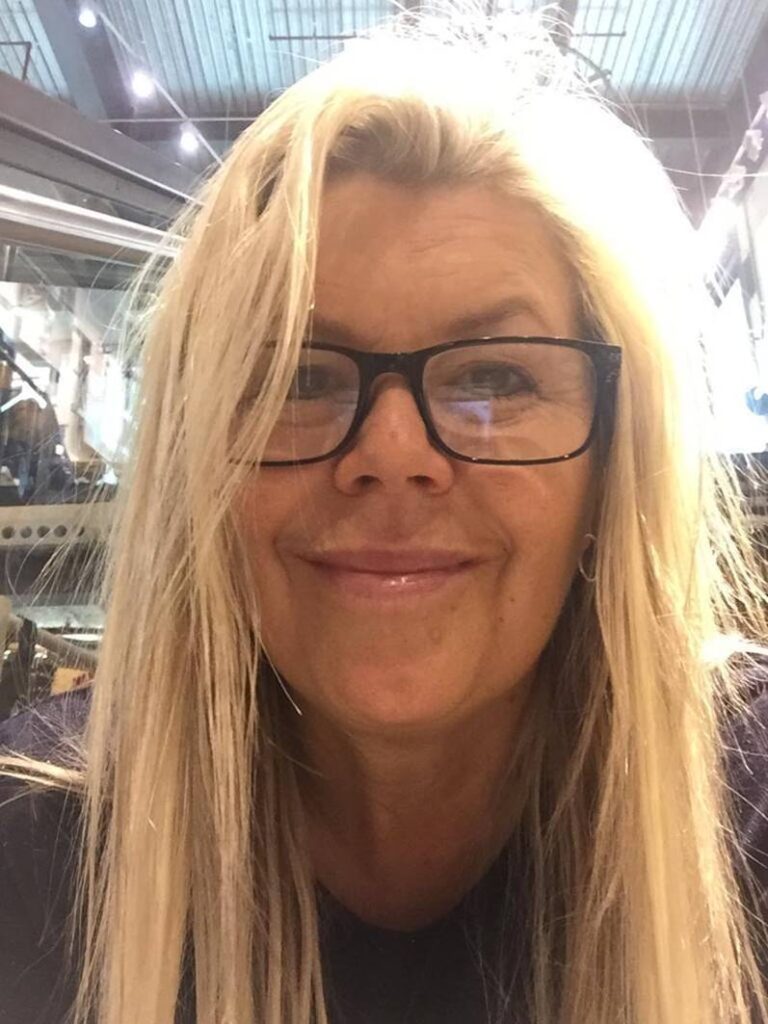
Jacquie Lawrence is the Former Commissioning Editor at Chanel 4 and Sky One, BAFTA Award winner as producer of Ross Kemp—Kemp on Gangs, author of “Difference for Girls, Same but Different” and others, and proud mother of two
The Jacket By E. Leifer
I met my first soul mate in 1984. I was 14 years old. She was hanging out with my sister at the time, but I had been eyeing her. She was covered in brown leather, sexy trim, big snaps. She had broad shoulders, narrow hips, that signature 80s upside down triangle silhouette I so longed for… she had it all. One day when my sister was out of town, I made her my own. And afterwards I hid her in my closet. She was a rare…perfect… jacket. Tight at the thigh, but somehow blousy at the top. Pure 80s magic. She was my first “feel good” jacket… and I spent the next 30 something years chasing that same high. I never felt safe growing up. I won’t get into the novel that is my childhood, but honestly, I didn’t think I would live long enough to be here considering that when I came out to my parents at 15, I got a “hard no” and nothing else. But I was still a tomboy, dressed as a pretty princess, taking every chance I could get to feel good in my presentation. Like getting to wear a proper tailored jacket, riding horses, or during the gender switch day of spirit week in high school, getting to rock a Wall Street/James Spader style suit with suspenders. And every time someone would die, I got to wear my long, black suit jacket that covered 70% of my body, to the funeral. I remember this one summer I borrowed my friends’ older brother’s jacket while he was away at college. It was acid washed denim, men’s Levi’s with a total George Michael vibe, I felt so good with it on, it was nearly impossible to give it back. I was always on a search for that one jacket. The jacket that would finally make me feel like…me. Which is something up until 4 years ago I realize I had never really felt. I was “full blown” dependent on jackets. Convinced it was only a matter of being in the right place at the right time with the right amount of money available on my credit card… and I put them all through the same excruciating checklist: Will this jacket give me broader shoulders? Will it give me narrower hips? Will it disguise my D cup bosoms when I want it to? It wasn’t just presentation. It was protection. It was preservation. By the time I turned 40, I was living in a studio apartment on the Upper East size that had a tiny closet FULL of soul mates. ***Twill jackets, tweed jackets, leather jackets, pleather jackets, silk jackets, an assortment of denim jackets in various washes, double breasted jackets, single button jackets, belted jackets, mesh jackets, sheer jackets, short sleeved jackets, post apocalyptic asymmetrical jackets, embroidered jackets, sequin jackets…I was literally living in a studio full of jackets, but still, NONE of them were just right. I would double them up, try different combos, layers, but it wasn’t enough. It just wasn’t…me. As my dependency on jackets intensified, my romantic relationships with people mostly sucked, probably because my relationship with myself was in flux even though I wasn’t fully aware of the disconnect. But I was finally, consciously, leaning into my masculinity. I started owning my natural walk – still hips, wide legs, shoulders broad. I wore oxfords and brogues- let go of my collection of heels. I cut my hair. I stopped wearing makeup. I was a ferocious advocate for the trans community. I was drawn to all things butch. I worked as a stylist and personal shopper, and I was witnessing others have these “a-ha!” moments in their clothes and I thought that’s great!…for them. But not for me. Not gonna happen. Some women will just NEVER be happy with their bodies, and I’m one of them. And then I got good health insurance for the first time in a long time. And with a genetic predisposition to estrogen fueled cancers, a long history of needing biopsies and MRIs, never knowing if this would be the time they say the dreaded words, I opted to get a preventative double mastectomy. When it came time to discuss reconstruction it was super clear to me that I really didn’t want them back. Yes it was more pragmatic: reconstruction can be a longer and more intensive recovery process, but it was also something more. It was actually shocking how indifferent I was to having breasts. I remember once thinking “NO boobs? NO problem!” I had no need for breasts, on myself. Don’t get me wrong, I love them on other people, I just don’t want them attached to me permanently. Of course it took me a full year of trying to convince my surgeon to keep me flat. She was afraid I would later change my mind and try to sue her. I just keep saying “Nope. I demand that flat be on the menu.” That surgery was four years ago, in June 2015. The recovery was long, arduous, a bit complicated, but by week three, once the drains were out, the swelling had gone down, and the stitches were unwrapped, I knew what I had to do and I slowly, with great effort, walked my tired ass to my closet, to see ALL my loves. I grabbed my “go-to” pinstripe jacket. She was one of my longest relationships (we spent a joyous night together in ‘97, at a Halloween party where I was dressed like Robert Palmer with my date was dressed as one of his back up singers). I gingerly put her on and… she no longer fit. It was no longer MY jacket. It wasn’t my body. There was this empty space where my D cups used to be. The bust seams puddled over my chest in a very not sexy way. We didn’t belong together anymore. And that… was perfect. I took off the jacket and
Q&A with Amber Hikes
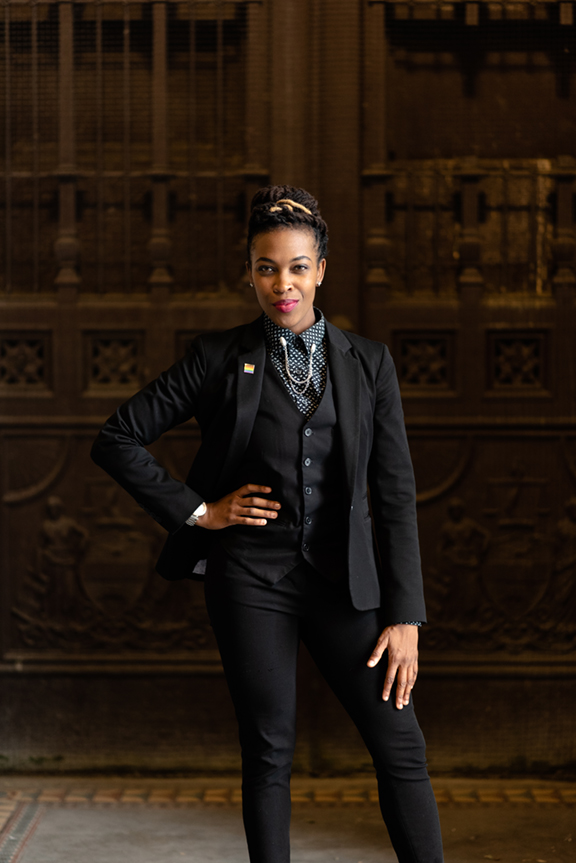
Our Hot Spot this month is the extraordinary activist, Amber Hikes. Many of you will be familiar with her, either from her speech at our House of Commons party last year, or her creation, the More Pride More Colour rainbow flag.
Q&A with Lola Flash
Lola Flash is an American photographer whose work has often focused on social, LGBT and feminist issues. An active participant in ACT UP during the time of the AIDS epidemic in New York City, Flash was notably featured in the 1989 “Kissing Doesn’t Kill” poster.
Q&A with Monica Boll
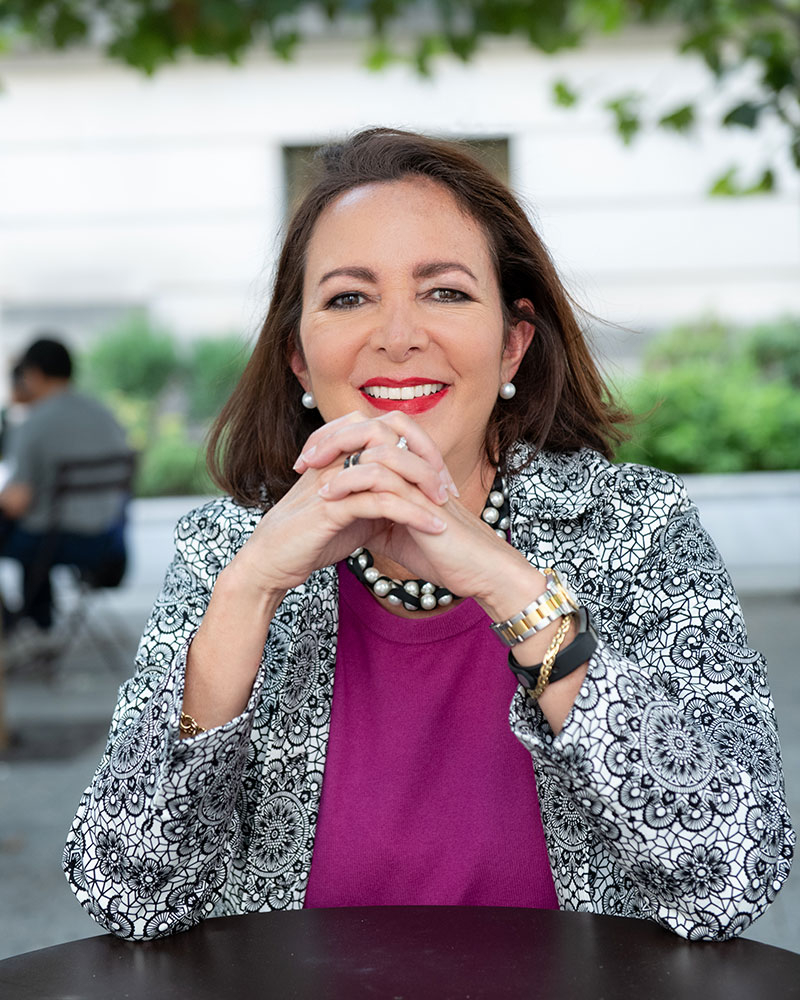
Monica is a Managing Director at Accenture and serves as the global sponsor for the firm’s Pride network. She is an active member of the Human Rights Campaign and volunteers with several LGBT+ non-profits.
Q&A with Antonia Belcher
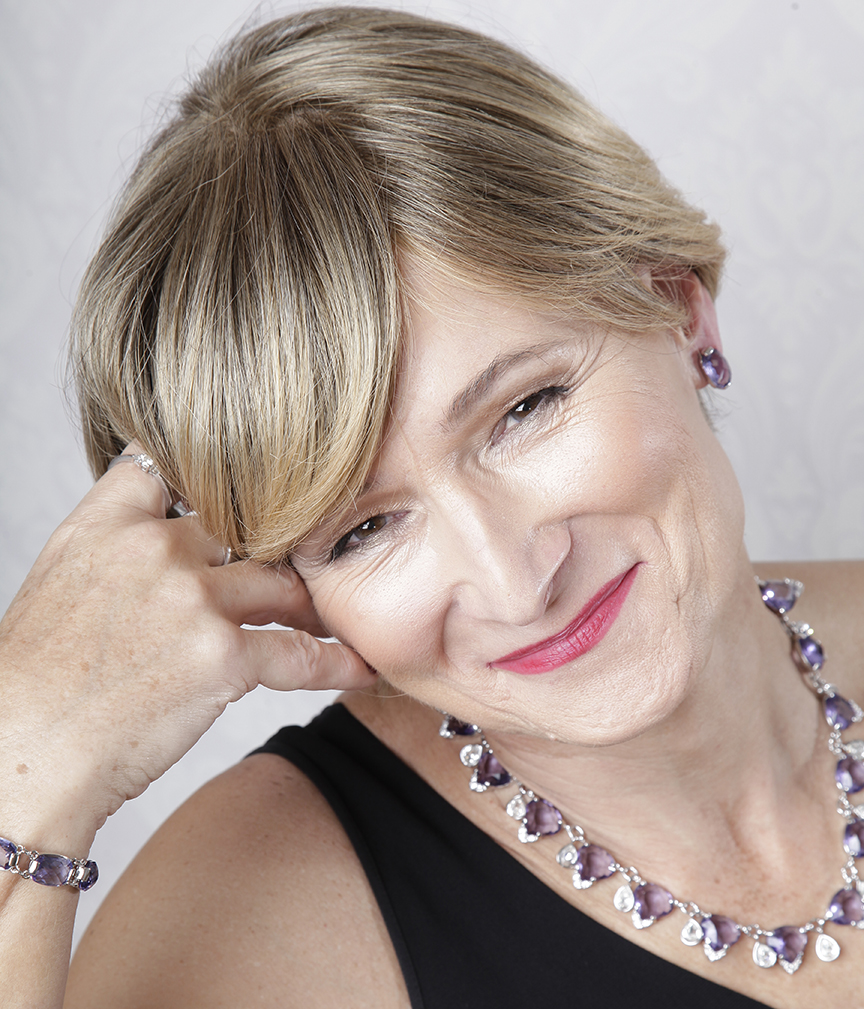
Antonia Belcher is a founding partner of Building Consultancy, MHBC, and has over 40 years of experience in the construction and property sector. Since her transition in 2000, she has been dedicated to the promotion of diversity in the workplace and is a driving force and champion for LGBTQ issues.
Phyll Opoku-Gyimah, Interview
We are delighted to welcome the awe-inspiring campaigner, Lady Phyll, as our latest Inspirational Role Model and to feature her moving answers to our latest IRM hot spot: Describe your role in one sentence To inspire, motivate and lead a team of dedicated and impassioned volunteers to deliver the intersectional celebration that is UK Black Pride. Who or what has been your main inspiration in your career? From the connection I feel to my ancestors to the women surviving and thriving without fanfare or acclaim, I’m inspired by Black and indigenous women. So much of our lived experience, as Black women and as queer Black women, is about fighting for the right to be heard, seen and valued, and so I’m inspired by women who won’t be quiet, who speak truth to power and who never let up. The women who inspire me, whether out and vocal activists, sex workers or mothers working hard to put food on the table, are formidable because they continue to survive against the odds, because they won’t be contained. I’m also incredibly inspired by my daughter; I want to help create a world she can be her best, most unapologetic self in. What are the five words that best describe you? Formidable, loving, loyal, powerful, beautiful What are your favourite pastimes when you aren’t working? I don’t have much free time but, when I do, I love listening to my daughter sing. There’s always a new book to read and one of my guilty pleasures is cocktails and dinner with friends and loved ones. If you could change one thing in the world what would it be? There is plenty to be changed about the world, but if I had to change one thing, there would be no racism. Racism impacts the lives of every single person on earth and means that those who are categorized as ‘other’ (in whatever country they’re in) are subject to the most grotesque and harmful discrimination. So much more could be achieved in this world if we didn’t first have to overcome the racism that so blights our lives. But, of course, I can’t change that on my own. It takes everyone recognizing how racism shows up in their language, in their thoughts; for people to really understand what it is and how it works, so that they can stop perpetuating the racism that casts such a daily shadow on the lives of Black, brown and indigenous people around the globe. What is your favourite holiday place – and why? Anywhere I can plunge into the ocean! What was the book which most influenced you when a teenager or child? The bible was an influencer as a child and then, as a teenager, it was a book “Black like me” by John Howard-Griffin and also “When a caged bird sings” by Maya Angelou. Do you like to live in the countryside or are you an urban person? I prefer a bit of both. There is something so energising about the city, but escaping to the countryside or to the coast is essential; not only for cleaner air, but for space! Including Stonewall and AKT, which charities do you support and why? I’m particularly passionate about charities that support LGBTQ youth, survivors of domestic and intimate partner violence and prisoners. What are your short, medium and long-term targets for UK Black Pride? The team and I share the same ambition: we’d love UK Black Pride to be the go-to policy and advocacy organisation for Black LGBTQ people across the UK. We’d like to see our work be more year-round, including satellite events around the country. And we’d like to develop more of our editorial offering, to ensure that diverse voices have a place they can call home. What initiatives – generally, professionally, personally – are currently top of your agenda? UK Black Pride has just entered into an important and hard-worked-for partnership with Stonewall to ensure we have the operational and financial support to continue our growth, so I’m spending a lot of time at the moment ensuring this partnership gets off to the best start. Stonewall are a dream to work with and we’re thrilled that they have put their money and operational know-how where their mouth is to help ensure we continue to grow. What are your biggest challenges in achieving an optimal work/life balance? I find it very difficult to switch off and so I’m really working on taking a step back, delegating and getting more rest. We’ve much work to do!
Q&A with Erin Uritus
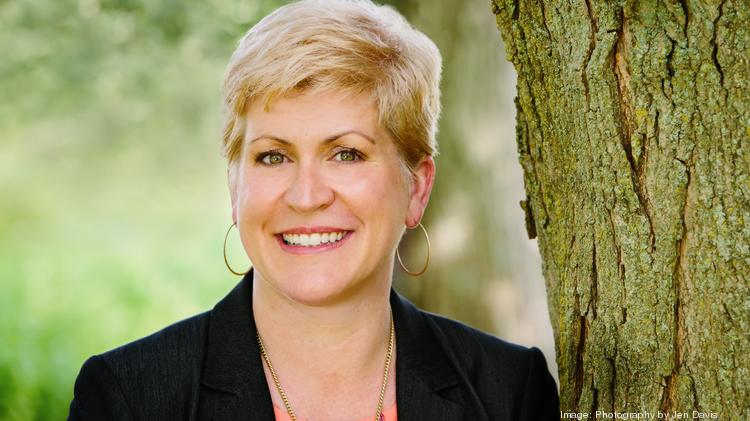
What has been the highlight of your career? I am very fortunate to have had a number of jobs that have given me opportunities to work for big, positive change in the world. Living and working in West Africa as my first job out of University, helping women’s journalists and supporting press freedom was phenomenal. Supporting the US government’s US Citizenship and Immigration Services post 9/11, as a change management consultant was an incredible honor. Living overseas and supporting a massive, whole-of-government modernization program certainly helped me in my role as CEO of Out & Equal. All of these and more have been extraordinary highlights and have made me who I am. Leading this organisation at a time in history when we see real backlash against our community alongside an exciting trend of corporate activism is very motivating. People do not want to go backwards, but rather see through and push forward their investments in Diversity and Inclusion, so we are well positioned to keep creating and supporting this wave of change. Who or what has been your main inspiration in your career? My parents are a huge inspiration and I love them very much, they are my personal heroes! Also my mother’s younger sister, Ann. She came to live with us when I was an infant, because my mother’s father and mother both passed away right before I was born. My parents were only 24 and my father was at grad school and working a few different jobs, but they took in my young aunt and uncle (14 and 13). So, they were together surviving the very traumatic experience of losing their parents, while also trying to get on with life and their own family, and ensured my childhood was filled with joy and love. My aunt is also a non-profit executive and has really inspired me through her pursuit of excellence and her integrity. She is always mission focused. She is brave, funny, caring and she has always loved me unconditionally and with no judgement, no matter who I was with or what my struggles were. What are your favourite pastimes when you aren’t working? Like most parents, my pastimes are tied up with having kids, so bringing young children back from overseas to a really cool city like Washington DC has been amazing. It has been great to see Washington through new eyes, get to know it again and appreciate what it offers families. This is especially the case with arts and culture. Aside from that, I try to visit as many restaurants, concerts and independent films with friends… lamenting of course the closing of my beloved “Phase 1” lesbian bar and celebrating a new one opening- League of her Own! What would you like to be if you didn’t do what you currently do? I can’t imagine doing anything different to what I’m doing now- it’s a dream job. However, if I were not doing this, I might try to work on or produce a National Public Radio (NPR) show like “This American Life”, work on “the Daily” podcast, or produce Rachel Maddow’s show. I have a huge passion for journalism and press freedom, so being involved in the news business in some capacity would be exciting and rewarding- especially now when we need good investigative reporting more than ever. What is your favourite restaurant – or best ever meal – and who was it with? I love all kinds of food, but right now Turkish and Korean are at the top of the list. I am fortunate enough to say that I have had too many “best” meals to count just one, but will just say, the company always counts most- I smile when I think of how many great moments of connection and dialogue I’ve had with amazing people over a great meal. What was the book which most influenced you when a teenager or child? Toni Morrison, who has sadly recently passed away, is my favourite author. Her book Beloved magically fell into my lap before spending a night on Goree Island in Dakar, Senegal when I was living there in 1997. I stayed up all night reading it in a small hotel, only 100 meters from the “Door of No Return” where thousands of slaves were deported to the United States. To me, she feels similar to my other favorite author Arundhati Roy (author of The God of Small Things) in that their writing is so rich with metaphor I am lost in the magical worlds of their characters- so many of whom are women facing difficult choices. Do you have something on your desk or where you work, which is personal – if so, what? Yes – it is one of my favourite things on my desk, although I also sometimes travel with it. It is a small booklet – a copy of our Constitution, that was given to me when I was waiting for a friend at Dulles Airport. It was just after Donald Trump had tried to introduce the Muslim travel ban, and my daughters’ father is Arab Muslim and was going to visit us in a few weeks. So, while waiting for my friend to come out, I approached a table of attorneys from the ACLU who were volunteering to help out people and their families who might have a hard time getting through Customs. As I was standing there, one of my most beloved heroes, Khizr Khan, visited the attorneys to thank and encourage them. He is the Pakistani father who lost his son in Iraq – a member of our military who fought for our country and was killed. He and his wife spoke at our Democratic National Convention in 2016. They talked about being proud Muslims and inspired everyone with their message about who our constitution was made for. In this widely seen speech, the most dramatic part is when he holds up a copy of the Constitution and speaks to Donald Trump directly,
Lesbian Visibility Day 2019
April 26th is Lesbian Visibility Day – who knew?! Well, actually relatively few people. Started in 2008, this day of visibility doesn’t get the same level of press as of some of the other LGBT+ events. It scores a relatively modest 7000 hits in a Google search, and only trended on Twitter for the first time last year. So why do so few of us know of its existence? And should we even care? The push for a Lesbian Visibility Day was started in Spain, as part of the community’s activities in response to the position that lesbians were having in society and public spaces. Since its incarnation lesbians have become more prominent than ever, taking an increasing number of roles in public life, politics, the arts and business. However, we still aren’t as good as other parts of the LGBT+ family at publicising and promoting ourselves. But even worse, the media isn’t very good at reporting or representing us. Ruth Hunt, CEO of Stonewall, addressed this beautifully as part of Lesbian Visibility Day last year, and you can check out the video here. So yes, Lesbian Visibility Day matters. It gives us an equal footing to be proud and represented. It gives people a chance to see the value in our amazing community, and it also gives us a chance to shape our own narrative. And that was why LBTQWomen was created. Offering a safe and inclusive space to celebrate, connect and champion women who identify as Lesbian (as well as other parts of the community). We don’t just want to represent one part of the lesbian experience, but through our Ambassadors and OUTDirectory, we are better able to participate proudly in the wider conversation. Being visible continues to help not just your immediate community, but also helps the representation of lesbians around the globe. You boost your visibility by joining our OUTDirectory, by helping the day trend on Twitter, or by just being open and out in your own community. We have strength in our numbers, and so, if possible be a little more visible this April 26th.
New Year, New Me, and Coming Out… Again
Every New Year’s Eve, every birthday, every milestone always brings with it the opportunity to reflect on our achievements and think about our future plans…how we might do things a little bit differently. But going into 2019 I knew, without a doubt, that it would be one of the biggest changes in my lifetime. Not only did I change my job and take on a great deal of new responsibility with it, but I also moved from my home city of Birmingham, where I spent the first 26 years of my life, into the UK’s bright and shining capital! It’s a move I have wanted to make for a long time but which sees me leaving behind all my friends and my entire family. This was not a decision to be taken lightly. I always knew there would be several career opportunities for me in London, but part of my decision to move was down to the amount of LGBT groups and events I could get involved with here. This is something I’ve felt I’ve missed out on in the past, and when I realised I was at a point in my life where I was financially stable and had no huge commitments tying me to the Midlands, I just had to make the jump. Before this year I really didn’t know more than a handful of people in London and I was risking a lot by taking a senior position at a new firm whilst attempting to continue my studies. Still, I was extremely excited for the beginning of my new adventure, and to live the London lifestyle I had always fantasised about. The move came with a lot of worries: Would I get on with my new housemates? Could I handle the extra workload of my new role? Would I cope with not seeing my mother every week? (Okay that one was probably going to be easy). But one thing that hadn’t crossed my mind until I got here: Would everyone be accepting of my sexuality? I’ve been out as a gay woman now for 5 years. All of my friends have somehow known for longer than me and my family have always been incredibly accepting of who I am. I’ve been met with very little homophobia or negativity and I think I had seriously underestimated just how lucky I am to have such an amazing and supportive circle of peers. London is generally known as being a city of culture, diversity and acceptance—far more so than the little suburb just outside Birmingham that I grew up in. So why was I worried? Most people in the LGBT community quickly learn that coming out is not a “one-off” occasion and from my own experience I know that 99.9% of the time it’s going to be a non-issue, yet I still have that niggling thought at the back of my mind: “What if they’re not going to be okay with it?” This comes down to the importance we assign to each individual’s acceptance and what it means to you. For example, coming out to your parents is usually a lot scarier than coming out to your hairdresser, because you can always find a new hairdresser. Without any friends or family in my new city, the acceptance of the people I would be living and working with was extremely important to me because there might be nobody else for me to turn to if they rejected me. I’m now a month into my new London life, and I’ve got to admit that everyone I have spoken to thus far has not batted an eyelid. Nonetheless, I can’t help but wonder if this is an issue that non-LGBT people are aware that we have to face. Do they know that sometimes we have to make a millisecond decision whether to come out in any given situation? It highlights why allies are so important in our community. Knowing beforehand that someone is an ally eradicates any fears a person might otherwise have about coming out to them and reassures us that even if we aren’t fully out, this person will accept us for who we are. We spend so much time telling each other to be out and proud, and I think we should be saying the same thing to our allies. Come out as an ally! Be proud of yourself for being an incredible and accepting human being. Even within our community, we should be showing our support to those outside of our own sexuality. To the gay gentlemen and our bisexual and trans brothers and sisters whose struggles all differ to my own: I see you. And I will try to support you as best I can. Allies are hugely appreciated. So… share this article with your friends and colleagues. Encourage them to continue to wear those rainbow flags, come to Pride with us, and to keep this in mind: If you accept and respect us, we ask you to stand with us and trust that you are completely welcome in the LGBT community. Being a visible and vocal ally might just make those hard decisions a little bit easier. by Claire Swallow – Accounts Manager at Green & Fortune based in London Instagram: @claire_swallow Twitter: @ClaireSwallow
